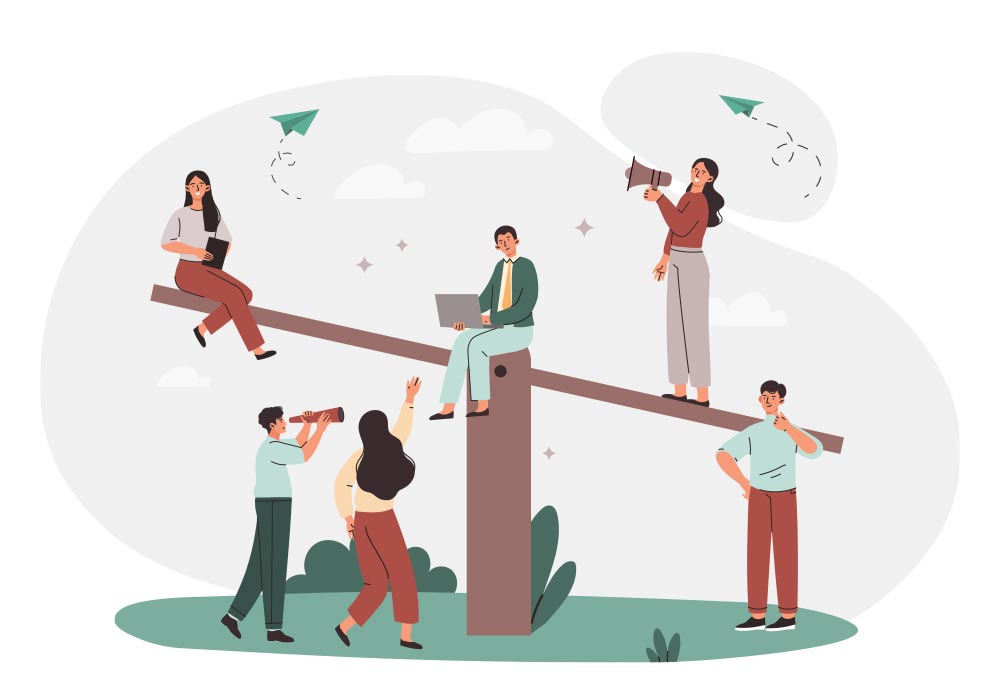From work-life balance to a holistic view of well-being
Workers now feel they can customise their own work-life balance according to their priorities and needs. A balanced life integrates the personal and professional in a healthy way, giving due time and energy to the career, but not necessarily making 100% of one’s day revolve around it.
In a 2022 survey of 1120 US workers by Forbes Health, which asked employees about their priorities, the only thing that rivalled financial stability was work-life balance, with 90% rating it as “an important aspect of their job”.
In addition, people look for other benefits to help foster a healthy integration of work and life. They expect the organisation to promote an environment of empathy and recognition, and to provide access to health and wellness resources.
Given that we’re currently aware of the difficulties of separating work and personal life, the aim is for companies to facilitate the work-life balance of their employees. In other words, demands that directly improve their personal lives, saving them time and minimising certain concerns. We’re talking, for example, about childcare services or benefits for the care of dependents.
But evolution is an ongoing process, and while work-life balance has evolved into an integration of work and life, it may continue to change as workers’ wants and needs become even more personalised, especially as they navigate different lifestyles and priorities.
Sources:

